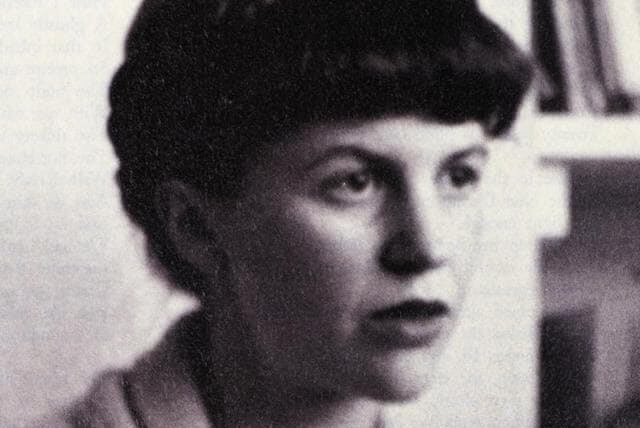Who was Sylvia Plath? The life and works of Sylvia Plath, who is famous for her poetry but also has novels and children’s books, and committed suicide in 1963.

Sylvia Plath
Sylvia Plath (1932-1963) was an American poet, novelist, and short-story writer. She is considered one of the most important and influential poets of the 20th century, known for her confessional style and her exploration of themes such as mental illness, gender, and death.
Plath was born in Boston, Massachusetts and grew up in a family of academics. She attended Smith College and later won a Fulbright Scholarship to study at Cambridge University in England, where she met and married fellow poet Ted Hughes. Plath’s first collection of poetry, “The Colossus and Other Poems,” was published in 1960.
In 1963, at the age of 30, Plath committed suicide by carbon monoxide poisoning. Her posthumous collection of poems, “Ariel,” which was published in 1965, is considered her most influential work.
Plath’s writing is characterized by its intense emotionality and her use of confessional poetry, which draws from personal experience to explore universal themes. Her work often focuses on the female experience and the struggle for self-identity and autonomy. Plath’s writing continues to inspire and influence generations of poets and readers.
Early Life and Education
Sylvia Plath was born on October 27, 1932, in Boston, Massachusetts, to Aurelia and Otto Plath. Her father was a German immigrant and a professor of entomology at Boston University, while her mother was a homemaker and a skilled amateur artist.
Plath grew up in a strict household that emphasized academic excellence and intellectual achievement. She was an exceptional student and won many awards for her writing, including a national contest for her poem “Two Lovers and a Beachcomber by the Real Sea” when she was just 18.
Plath attended Smith College in Northampton, Massachusetts, where she continued to excel academically and became involved in the college’s literary scene. During her junior year, she won a guest editorship at Mademoiselle magazine in New York City, an experience that would later inform her novel, “The Bell Jar.” However, the experience was also traumatic for Plath, as she felt out of place and struggled with mental illness.
After graduating from Smith in 1955, Plath was awarded a Fulbright Scholarship to study at Newnham College, Cambridge University, in England. It was there that she met and married fellow poet Ted Hughes, with whom she had two children.
Career and Works
Sylvia Plath began her writing career as a student at Smith College, where she published her first poem in the college literary magazine. Throughout her life, she wrote poetry, prose, and critical essays that explored themes such as mental illness, gender, and death.
Her first collection of poetry, “The Colossus and Other Poems,” was published in 1960 to critical acclaim. The collection contains some of her most famous poems, including “The Colossus,” “Tulips,” and “The Arrival of the Bee Box.”
Plath’s only novel, “The Bell Jar,” was published in 1963, just a month before her death. The novel is a semi-autobiographical account of a young woman’s descent into mental illness and suicide attempts, and is considered a classic of feminist literature.
After Plath’s death, her husband Ted Hughes edited and published a collection of her poetry called “Ariel,” which includes some of her most powerful and influential poems. Hughes went on to publish several more collections of her work, including “Crossing the Water,” “Winter Trees,” and “The Collected Poems.”
Plath’s work has had a lasting impact on contemporary poetry and literature. She is considered one of the most important and influential poets of the 20th century, known for her confessional style and her exploration of personal and universal themes. Her writing has inspired generations of poets and readers, and her legacy continues to grow.
Legacy and Death
Sylvia Plath’s legacy is profound and far-reaching. Her work has had a major impact on contemporary poetry and literature, and she is widely regarded as one of the most important and influential poets of the 20th century. Her intense and confessional style of writing, as well as her exploration of themes such as mental illness, gender, and death, continue to inspire readers and writers today.
Plath’s untimely death at the age of 30, by suicide, has also contributed to her lasting legacy. Her struggles with mental illness and the themes of death and suicide in her writing have made her an important figure in discussions about mental health and suicide prevention.
In addition to her literary achievements, Plath has also become a cultural icon. Her life and work have been the subject of numerous biographies, documentaries, and films, including the critically acclaimed biopic “Sylvia,” starring Gwyneth Paltrow.
Despite her short life and career, Sylvia Plath’s impact on poetry and literature is enduring, and her writing continues to resonate with readers around the world.